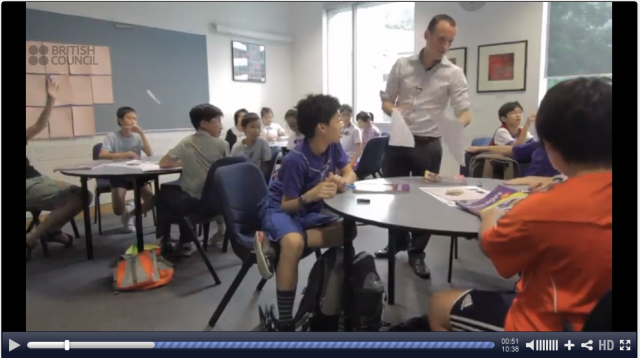
Comments
Teaching tips
Thanks to David Rixon for those practical tips to bear in mind when teaching.
Useful tips
Hello. I enjoyed this video. It was quite interesting. Every class is different. The more tips we have, the better chances to meet students needs.
Thanks again.
Classroom management
I have recently started my WIL practical and I am experience both best and worst experiences. The school is overcrowded and learners promote the culture of misbehaver. I do not know how to properly manage them please assist
Classroom management
Hi there,
That sounds very stressful for you Nontokozo112, I hope you find it gets better as you get into routines with your classes. You might find this video useful https://www.facebook.com/TeachingEnglish.BritishCouncil/videos/648092096644279, and this article has a range of useful tips. Search the site for more, join the teachers' community and find other teachers who can give you support :).https://www.facebook.com/groups/1095104140523615
Anne
TeachingEnglish team
Environment in a classroom
I need your help. It’s really great to have your own area where you can arrange everything to make learning English easy. But what should I do when I don’t have any opportunity to do this. When our teachers have lessons in different classes. And you need more time for preparation. You need to move furniture, stick some flash cards , ….
Moving classrooms
Hi Lesiak,
Yes, that makes it a lot more difficult, having a 'bag packed' helps a bit, having all the typical things you need in a suitcase and moving that round can help ( I know that may not be practical, but I've seen it work really well) Asking for cupboard/ shelf space if that's possible in the different rooms also can help. If technical set up is the issue, there is no quick solution I'm afraid - so many times we've all got to a room to find something doesn't work. Maybe other teachers here have some other ideas?
Anne
TeachingEnglish team
I think all the tips very useful. I find setting rules, respecting them and building routines are very important during learning for example saying "please, thank you and excuse me" , tidying up desks after each session or activity and putting books/ notebooks away when finishing with a task avoids a lot of mess when doing group work. I agree with the teacher that putting away pencil cases avoids a lot of trouble such as losing or quarrelling about things. And more important is respecting the teacher and classmates when they talk without interrupting them.